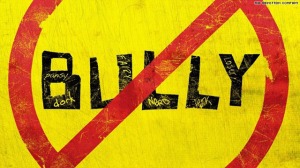
Social media sites are a great way for teenagers to socialise with their friends. Twitter, Facebook, MySpace, and Instagram are all social networks that teenagers use to communicate with their friends and others through the Internet. But with the use of these networks increasing daily stories of teenagers coming under attack by cyber bullies and the fatalities because of this is also rising. Parents and teachers are mentors and guardians of children and teenagers; therefore do you think that they should have a better understanding of cyber bullies on the Internet to help guard teenagers against harmful situations?
In October 2013 a 12 year old girl from Florida committed suicide after malicious messages were sent to her via social networking sites. Two girls were later arrested in connection with the death of Rebecca Sedwick; however even after her death more spiteful messages appeared on Facebook clearly showing that the two girls felt no remorse over their actions. The parents of the two girls and the staff of the school came under scrutiny for not taking action earlier to prevent this tragedy as it came out that Rebecca and her mother had apparently reported the bullying to the school before the fatal incident. The police officer that was appointed to the case urged parents to take more responsibility for their children’s actions online. Many of the public believe that the parents of the two girls are to blame as they did not know their teenage daughters activities online and maybe if they knew more about it, they could have prevented the casualty of the young girl. Do you believe this is true?
Another cyber bullying case that caused a teenage suicide is the one about Rehtaeh Parsons, but this time instead of the parents it was the teachers of her school that came under scrutiny for not helping to prevent the fatal incident. Rehtaeh committed suicide after months of torture over social media sites where pictures and videos had surfaced of her being raped by four different boys. When finding out the news her parents did everything they felt they could do to support Rehtaeh, however they felt that the school did not support her and take necessary action within the school. As the pictures and videos were circulating around Rehtaeh’s classmates, she found school unbearable with the constant negative comments made towards her face to face and over the web. Her parent’s felt that the school should have spoken to students about the incident and supported Rehtaeh in anyway they could to make her time at school more bearable. Some of the public feel that if the teachers were more aware of how harmful cyber bullying can be to a person’s emotional and physical state maybe they would have understood and helped her more during this troubling time. Do you believe that the teachers could have done more in this situation?
After hearing about the two different cases on teenage cyber bullying do you think that it is teachers and parents moral duty to be more aware of cyber bullying amongst teens to help prevent further suicides?
Please let us know your thoughts on this subject; all your views are very much appreciated.
R






